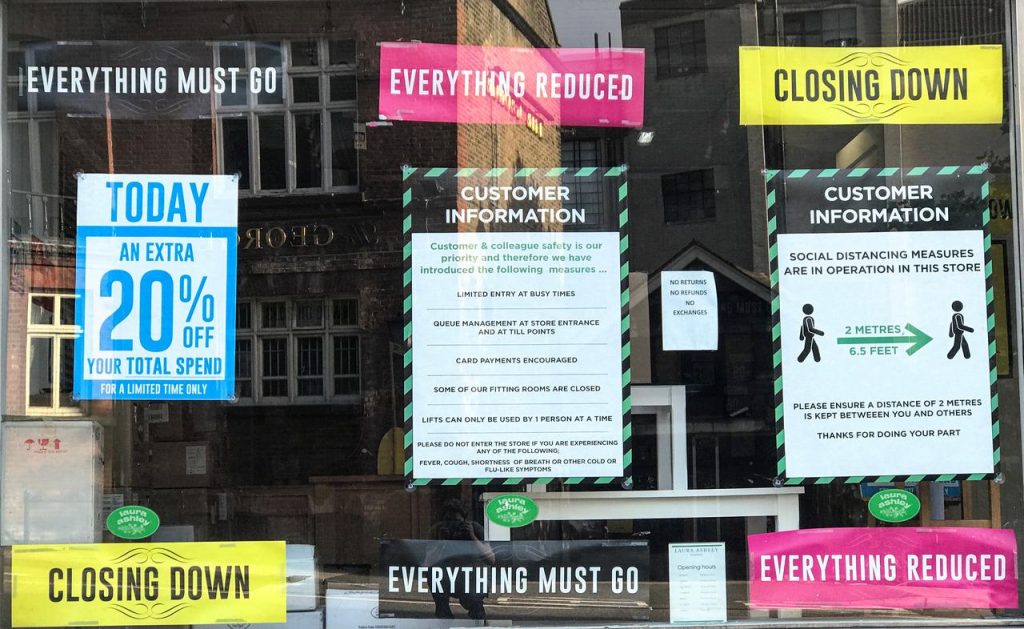British retailers discounted their goods less in July than the month before, after consumer demand picked up in many sectors as coronavirus lockdown restrictions eased, data from the British Retail Consortium showed on Wednesday.
Average shop prices in July were 1.3% lower than a year before, compared with 1.6% lower in June and a record 2.4% fall in May.
July’s reading was driven by a smaller price fall of 2.9% for non-food prices in July, down from a 3.4% drop in June.
“Sectors which saw a release of pent-up demand, such as electricals and furniture, saw fewer promotions,” BRC chief executive Helen Dickinson said.
But other sectors such as health and beauty remained under significant pressure, she added.
Inflation in the food sector – one of the few areas to increase sales during lockdown, as more British people ate at home – remained unchanged at 1.5%.
Wednesday’s data broadly tally with official data last week which showed overall retail spending rebounded to around its pre-COVID level in June after a previous slump of more than 20%, but that there were marked differences between sectors.
Supermarkets, home hardware and online stores have done well, while sales of clothing and many other less essential goods remain significantly down compared with a year ago.
Figures from the Confederation of British Industry suggested a similar pattern continued in early July.
The BRC survey was conducted between July 1 and July 7.



